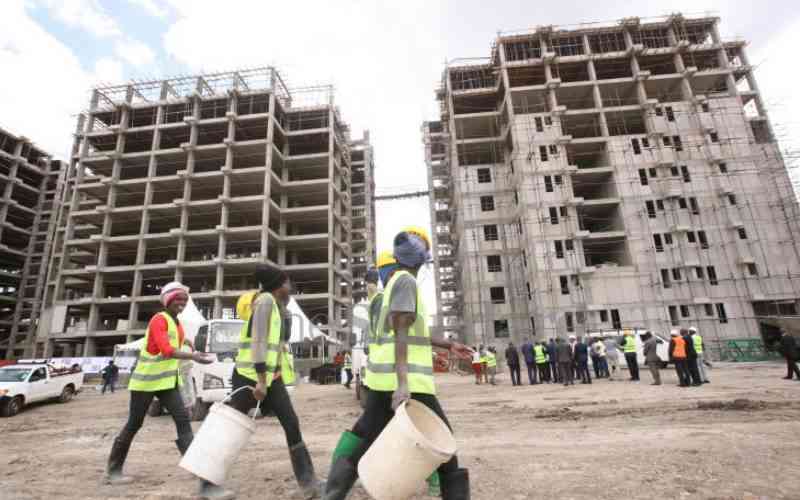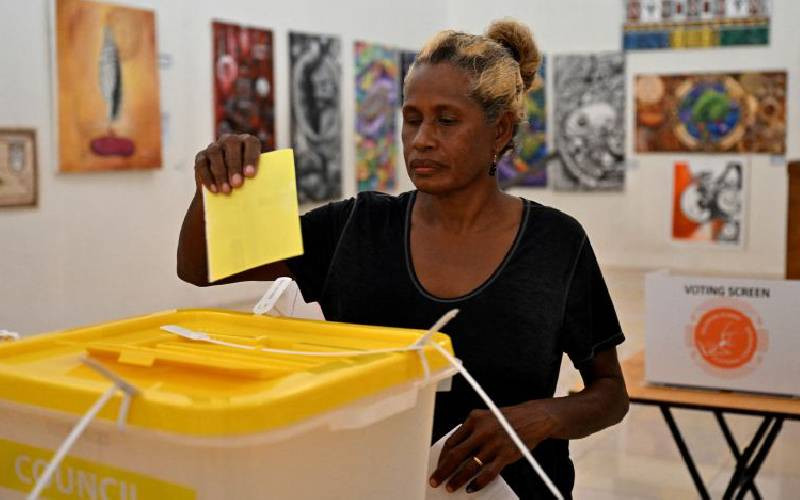Mt Elgon property sector stakeholders are worried that the lack of title deeds for many land holdings is holding back the real estate sector in the area. The area is classified as prime agricultural land.
Area MP, Fred Kapondi, says most land parcels in the area lack ownership documents, keeping off investors.
“Our real estate sector is dormant and we cannot even attach a price to our plots. Most residents only have allotment letters as proof of ownership. That is keeping off potential investors.... As a result, land-related conflicts continue to make our real sector to be classified as too risky,” he said.
The worst hit area is the Chepyuk Land Settlement Scheme that borders Kenya and Uganda. This is the settlement scheme that had been associated with a murderous rag tag militia by the name Sabaot Land Defence Force (SLDF) that was blamed for hundreds of murders in the name of land.
Start of problems
He said the area has been volatile since 1971 when land started being adjudicated.
However, Cabinet Secretary for Lands Farida Karoney says the Government is aware of the issue and will “deal with the issue once and for all”, adding that all stakeholders will be brought on board.
“We know that there are people who have waited for title deeds for too long to a point that corrupt cartels out to grab the untitled parcel land have been organising terror here so that people can flee...,” she said when she recently toured the area accompanied by Interior CS, Fred Matiang’i.
She said the “already bad Chepyuk case” has been aggravated by emergence of “smart crooks” who have accessed the survey map of the area and identified the areas set aside for public utilities and proceeded to grab them and sold them off.
Originally, the Chepyuk Settlement Scheme was to settle the Sabaot community that had been pushed out of their land by the British in colonial Kenya.
Conflicts in the scheme have persisted since 1971 but blew up in 2006.
The Government began the first resettlement process, called Chepyuk Phase One between 1971 and 1974 but poor preparations, lack of title deeds and corruption left members disgruntled.
Aborted plans
Without addressing the title deeds issue, the Government announced a second resettlement plan in 1989 — the Chepyuk Phase Two.
Then in 2007, the Government prepared a list of 4,000 people to be allocated land and eventually be issued with title deeds.
Stay informed. Subscribe to our newsletter
But problem arose after the list of those to be given title deeds was revised to 1,772, throwing the process into confusion.
Ahead of the 2017 elections, President Uhuru Kenyatta issued title deeds to a section of residents.
The grumbling of those who were left out eventually saw the security situation turn bloody, which prompted high profile Government security officers to tour the area in March 2018.
Now, Karoney says the Government will continue to focus its energies on issuance of title deeds as a solution to land conflicts. She says the title deeds would give the residents a sense of ownership of the land and enable them borrow loans and engage in projects that can uplift their lives.
 The Standard Group Plc is a
multi-media organization with investments in media platforms spanning newspaper
print operations, television, radio broadcasting, digital and online services. The
Standard Group is recognized as a leading multi-media house in Kenya with a key
influence in matters of national and international interest.
The Standard Group Plc is a
multi-media organization with investments in media platforms spanning newspaper
print operations, television, radio broadcasting, digital and online services. The
Standard Group is recognized as a leading multi-media house in Kenya with a key
influence in matters of national and international interest.
 The Standard Group Plc is a
multi-media organization with investments in media platforms spanning newspaper
print operations, television, radio broadcasting, digital and online services. The
Standard Group is recognized as a leading multi-media house in Kenya with a key
influence in matters of national and international interest.
The Standard Group Plc is a
multi-media organization with investments in media platforms spanning newspaper
print operations, television, radio broadcasting, digital and online services. The
Standard Group is recognized as a leading multi-media house in Kenya with a key
influence in matters of national and international interest.








